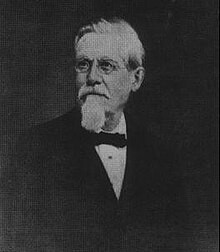Mexicanos, al grito de guerra
el acero aprestad y el bridón.
𝄆 Y retiemble en sus centros la Tierra,
al sonoro rugir del cañón. 𝄇
I
Ciña ¡Oh Patria! tus sienes de oliva
de la paz el arcángel divino,
que en el cielo tu eterno destino
por el dedo de Dios se escribió.
Mas si osare un extraño enemigo
profanar con su planta tu suelo,
piensa ¡oh Patria querida! que el cielo
𝄆 un soldado en cada hijo te dio. 𝄇
V
¡Guerra, guerra sin tregua al que intente
de la patria manchar los blasones!
¡guerra, guerra! los patrios pendones
en las olas de sangre empapad.
¡Guerra, guerra! en el monte, en el valle,
los cañones horrísonos truenen,
y los ecos sonoros resuenen
𝄆 con las voces de ¡Unión! ¡Libertad!. 𝄇
VI
Antes, Patria, que inermes tus hijos
bajo el yugo su cuello dobleguen,
tus campiñas con sangre se rieguen,
sobre sangre se estampe su pie.
Y tus templos, palacios y torres
se derrumben con hórrido estruendo,
y sus ruinas existan diciendo:
𝄆 de mil héroes la patria aquí fue. 𝄇
X
¡Patria! ¡Patria! tus hijos te juran
Exhalar en tus aras su aliento,
Si el clarín con su bélico acento
los convoca a lidiar con valor.
¡Para ti las guirnaldas de oliva!
¡Un recuerdo para ellos de gloria!
¡Un laurel para ti de victoria!
𝄆 ¡Un sepulcro para ellos de honor! 𝄇}}
|
Chorus:
[me.xi.ˈka.nos al ˈgɾi.to‿ðe‿ˈɣe.ra]
[el a.ˈse.ɾo‿a.pɾes.ˈtað j‿el‿βɾi.ˈðon]
𝄆 [i re.ˈtjem.bl(e)‿en sus ˈsen.tɾoz‿la ˈtje.ra]
[al so.ˈno.ɾo ru.ˈxiɾ‿ðel ka.ˈɲon] 𝄇
I
[ˈsi.ɲa‿o ˈpa.tɾja tus ˈsje.nez‿ðe‿o.ˈli.βa]
[de la pas el aɾ.ˈkaŋ.xel di.ˈβi.no]
[k(e)‿en el ˈsje.lo tu‿e.ˈteɾ.no‿ðes.ˈti.no]
[poɾ el ˈde.ðo‿ðe‿ðjos s(e)‿es.kɾi.ˈβjo]
[mas si‿o.ˈsa.ɾe‿un eks.ˈtɾa.ɲo‿e.ne.ˈmi.ɣo]
[pɾo.fa.ˈnaɾ kon su ˈplan.ta tu ˈswe.lo]
[ˈpjen.sa‿o ˈpa.tɾja ke.ˈɾi.ða k(e)‿el ˈsje.lo]
𝄆 [un sol.ˈda.ðo‿eŋ‿ˈka.ða ˈi.xo te‿ðjo] 𝄇
V
[ˈge.ra‿ˈɣe.ra sin ˈtɾeɣ.w(a)‿al ke‿in.ˈten.te]
[de la ˈpa.tɾja man.ˈt͡ʃaɾ loz‿βla.ˈso.nes]
[ˈge.ra‿ˈɣe.ra los ˈpa.tɾjos pen.ˈdo.nes]
[en las o.laz‿ðe ˈsaŋ.gɾ(e)‿em.pa.ˈpað]
[ˈge.ra‿ˈɣe.ra‿en el ˈmon.t(e)‿en el‿βa.ʝe]
[los ka.ˈɲo.nes o.ˈri.so.nos ˈtɾwe.nen]
[i los ˈe.kos so.ˈno.ɾoz‿re.ˈswe.nen]
𝄆 [kon laz‿ˈβo.sez‿ðe‿un.ˈjon li.βeɾ.ˈtað] 𝄇
VI
[ˈan.tes ˈpa.tɾja ke‿in.ˈeɾ.mes tus ˈi.xos]
[ˈba.xo‿el ˈɟʝu.ɣo su ˈkwe.ʝo‿ðo.ˈβle.ɣen]
[tus kam.ˈpi.ɲas kon ˈsaŋ.gɾe se ˈrje.ɣen]
[ˈso.βɾe ˈsaŋ.gɾe s(e)‿es.ˈtam.pe su pje]
[i tus ˈtem.plos pa.ˈla.sjos i ˈto.res]
[se‿ðe.ˈrum.ben kon ˈo.ri.ðo(‿)es.ˈtɾwen.do]
[i suz‿ˈrwi.nas eɣ.ˈsis.tan di.ˈsjen.do]
𝄆 [de mil ˈe.ɾoez‿la ˈpa.tɾj(a)‿a.ˈki fwe] 𝄇
X
[ˈpa.tɾja ˈpa.tɾja tus ˈi.xos te ˈxu.ɾan]
[ek.sa.ˈlaɾ en tus ˈa.ɾas su‿a.ˈljen.to]
[si‿el kla.ˈɾin kon su‿ˈβe.li.ko‿a.ˈsen.to]
[los kom.ˈbo.k(a)‿a li.ˈðjaɾ kon ba.ˈloɾ]
[ˈpa.ɾa ti laz‿ɣiɾ.ˈnal.daz‿ðe‿o.ˈli.βa]
[un re.ˈkweɾ.ðo ˈpa.ɾa(‿)ˈe.ʝoz‿ðe‿ˈɣlo.ɾja]
[un lau.ˈɾel ˈpa.ɾa ti‿ðe‿βik.ˈto.ɾja]
𝄆 [un se.ˈpul.kɾo ˈpa.ɾa ˈe.ʝoz‿ðe‿o.ˈnoɾ] 𝄇
|
Chorus:
Mexicans, at the cry of war,
assemble the steel and the bridle,
𝄆 and the Earth trembles to its core
to the resounding roar of the cannon. 𝄇
I
Encircle Oh Fatherland!, your temples with olives
the divine archangel of Peace,
for in heaven your eternal destiny
was written by the finger of God.
If, however, a foreign enemy would dare
to profane Your ground with their sole,
think, Oh beloved Fatherland!, that Heaven
𝄆 has given a soldier in every son. 𝄇
V
War, war! with no mercy to any who shall try
to tarnish the coats of arms of the Fatherland!
War, war! The national banners
Shall be drenched in the waves of blood.
War, war! On the mountain, in the valley,
The cannons thunder in horrid unison
and the sonorous echoes resound
𝄆 with bellows of Union! Liberty! 𝄇
VI
O, Fatherland, if however your children, defenseless
With their necks bent beneath the yoke,
May your fields be watered with blood,
May their footsteps be printed with blood.
And your temples, palaces and towers
Shall collapse with horrid clamor,
And your ruins continue on, whispering:
𝄆 Of one thousand heroes, the Fatherland once was. 𝄇
X
Fatherland! Fatherland! Your children assure
to breathe until their last for your sake,
if the bugle with its bellicose accent
calls them together to battle with courage.
For you, the olive wreaths!
For them, a reminder of glory!
For you, a laurel of victory!
𝄆 For them, a tomb of honor! 𝄇
|


